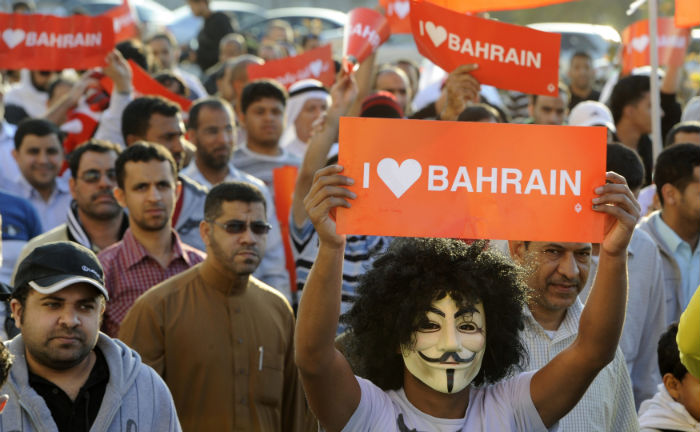Bahrain Invites Opposition To Feb 10 Reconciliation Talks
Opposition groups have suggested they would attend but cited differences with the government over the aim of the talks.

Bahrain will begin reconciliation talks on Sunday with opposition groups, the government said on Tuesday, in an effort to end nearly two years of strife over demands for more democracy in the US-allied Gulf Arab state.
Opposition groups contacted by Reuters suggested they would attend the talks but cited differences with the government over the goal of the dialogue that could undermine its effectiveness.
The small island kingdom, where the US Fifth Fleet is based as a bulwark against Iran, has been in ferment since protests erupted in early 2011 demanding a constitutional monarchy with an elected government.
The talks are seen as crucial to restoring stability to the oil-producing kingdom neighbouring oil superpower Saudi Arabia.
Bahraini officials said invitations would be issued later in the day to about 17 pro-government and opposition groups and delegates from the two houses of parliament to attend the talks starting on Feb. 10.
“We have every intention to make this dialogue a success,” Information Affairs Minister Samira Rajab told Reuters. “The onus is on the other parties and their seriousness in pursuing dialogue.”
Khalil al-Marzouq, a senior official in the main opposition group Wefaq, said his and other dissident groups were at odds with the government over the aims and mechanism of the talks.
He said that opposition leaders wanted representatives of the ruling Al Khalifa family to participate and had also requested unspecified international experts to attend.
The government had either rejected these demands or sought to defer them for discussion at the talks, he said.
“We want a real dialogue, serious negotiations on a mechanism that will restore powers to the people and turn Bahrain into a constitutional monarchy,” Marzouq said.
Bahraini officials say the kingdom has introduced major reforms since the authorities imposed temporary martial law to help crush major pro-democracy unrest inspired by Arab Spring demonstrations in Tunisia and Egypt.
The reforms, part of wider constitutional changes announced by King Hamad in January 2012, boost parliament’s powers to question and remove ministers and to withdraw confidence in the cabinet.
The opposition says the reforms are cosmetic because they do not challenge the royal family’s monopoly on ultimate power, and smaller scale protests have continued.
